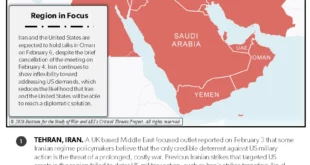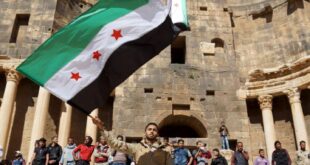 RAFAH, Gaza Strip – Tens of thousands of Palestinians poured into Egypt from the Gaza Strip on Wednesday after militants blew up a border wall, and stocked up on food and fuel in short supply because of an Israeli blockade.
RAFAH, Gaza Strip – Tens of thousands of Palestinians poured into Egypt from the Gaza Strip on Wednesday after militants blew up a border wall, and stocked up on food and fuel in short supply because of an Israeli blockade.
“Those people are hungry for freedom, for food and for everything,” said an Egyptian shopkeeper who gave her name only as Hamida, surveying shelves emptied swiftly by Gazans paying with Egyptian pounds and Israeli shekels.
The fall of the Rafah wall punched a new hole in efforts by Israel, under frequent rocket attack from the Hamas-ruled Gaza Strip, to keep pressure on the territory in the face of an international outcry over shortages and Palestinian hardship.
The flood of people into the Egyptian part of Rafah — some on donkey carts and carrying bags and cases to fill with consumer goods — also forced Israel into a delicate diplomatic balancing act with its first Arab peace partner.
Egypt proposed that it take a new look, with Israel and the Palestinian Authority, at how to reactivate their border agreement, the Foreign Ministry in Cairo said.
Residents of Rafah, a divided town straddling the Egypt-Gaza border, said militants set off explosions that demolished a 200-metre (200-yard) length of the rusting, six-meter (20-foot) high metal border wall put up by Israel in 2004, a year before it pulled its troops and settlers from the territory.
Locals estimated at least 200,000 people crossed over in a rare opportunity to leave what Gazans call a giant jail.
Pushing a trolley among the crowds that turned Rafah into a bazaar, Mohammed Saeed said: “I have bought everything I need for the house for months. I have bought food, cigarettes and even two gallons of diesel for my car.”
Israel tightened its Gaza border closure last week, briefly halting fuel delivery to a main power plant and cutting supplies to petrol stations, as well as food and other humanitarian aid.
‘LIVING UNDER CHAOS’
Israeli Prime Minister Ehud Olmert, under pressure to prove his security mettle before publication next week of an inquiry’s report on the costly 2006 Lebanon war, reiterated a vow to maintain pressure on Gaza until the rocket salvoes cease.
But, addressing an annual policy conference in Herzliya, he also said he would not let Palestinian privations reach crisis point.
“We will not harm the supply of food for children, medicine for those who need it and fuel for institutions that save lives.
“But there is no justification for demanding we allow residents of Gaza to live normal lives while shells and rockets are fired from their streets and courtyards at Sderot and other communities in the south,” Olmert said in his speech.
The United States rallied to its ally’s defense.
“The Palestinians living in Gaza are living under chaos because of Hamas, and the blame has to be placed fully at their feet,” White House spokeswoman Dana Perino said.
The border terminal in Rafah, once a main avenue to the outside world for Gazans, has been largely closed since Hamas Islamists opposed to Palestinian President Mahmoud Abbas’s peace efforts with Israel seized control of the Gaza Strip in June.
In Cairo, Egyptian President Hosni Mubarak said he told the security forces: “Let them come in to eat and buy food.” The Gazans could then go back “as long as they are not carrying weapons”, Mubarak said.
Israeli defense Minister Ehud Barak, visiting Paris, was careful not to criticize Egypt.
“I believe that they (the Egyptians) know and will respect their role in this whole picture,” he told reporters.
Past Israeli criticism of Egypt’s failure to curb weapons smuggling into the Gaza Strip through tunnels running under Rafah provoked an angry response from Cairo, a key supporter of U.S.-sponsored peace talks between Israel and the Palestinians.
The European Union and international agencies have called the closure collective punishment — banned by the Geneva Conventions — of Gaza’s 1.5 million people.
The Israeli army says about 250 rockets and mortar rounds have pounded Israel since last week. Over the same period, Israeli troops killed more than 30 Palestinians.
 Eurasia Press & News
Eurasia Press & News



